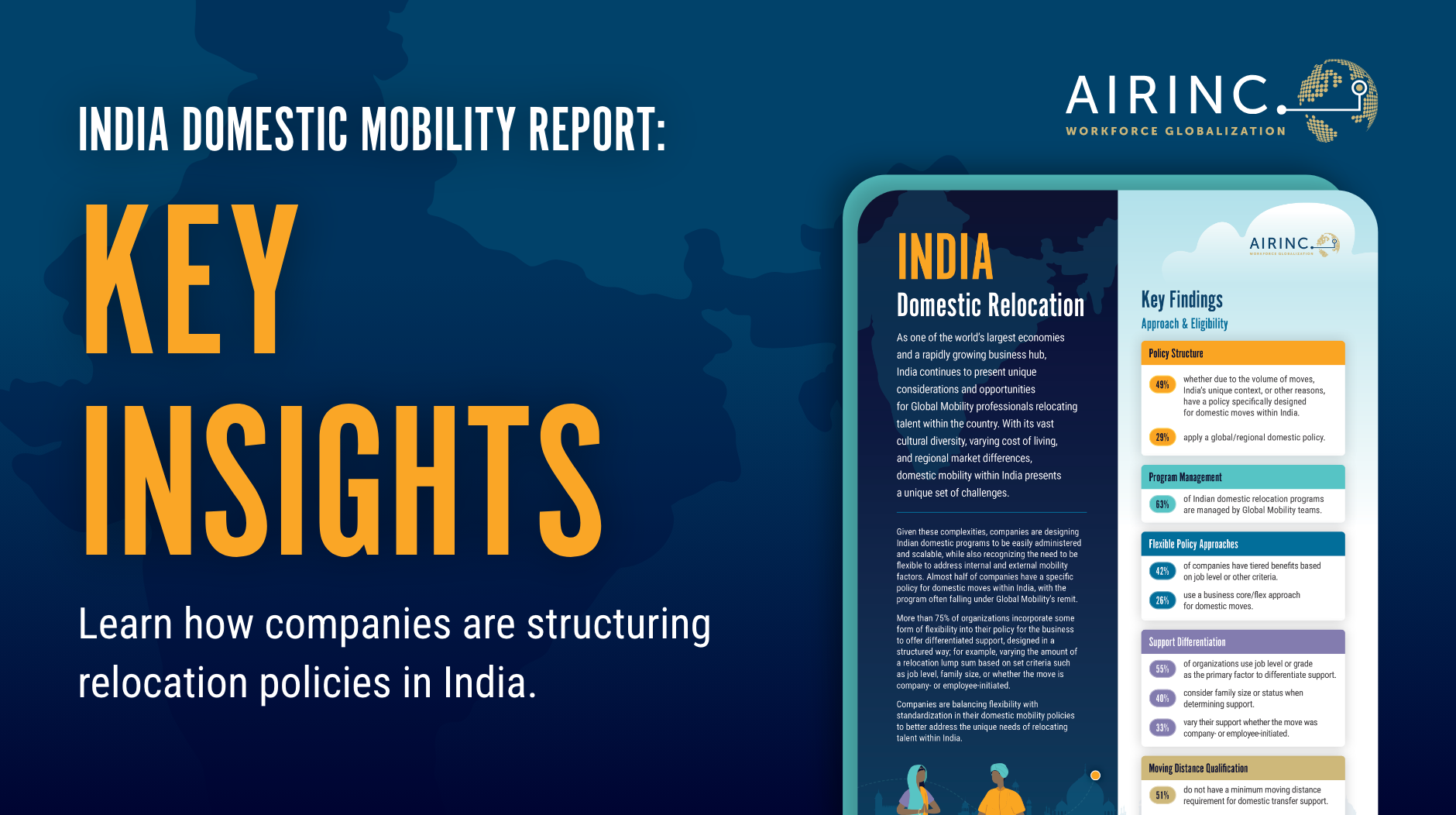Following the launch of our recent India Domestic Survey, this blog takes a closer look at approaches to housing support and family assistance typically offered during domestic India moves per our findings.
India's domestic relocation programs aim to navigate the complexities of supporting talent across a culturally diverse and geographically vast country. Policies often reflect a mix of flexibility and structure to balance organizational goals and the unique needs of relocating employees and their families.
Housing Support: Balancing Flexibility and Limitations
Housing assistance remains a critical but varied component of domestic relocation programs in India:
- Destination Housing Costs: Approximately 34% of organizations assist with costs related to securing rental accommodations, such as covering realtor fees or providing housing deposit advances. However, 51% of companies do not offer any destination housing support.
- Temporary Living Expenses: Temporary living arrangements are a common focus, with 62% of companies consistently covering temporary housing expenses for an average of 21.4 days. Most organizations reimburse eligible costs, though some provide direct bookings as an in-kind service.
- Lease Cancellation Fees: Support for lease cancellations at the origin location is rare, with only 20% of companies offering consistent assistance and an additional 12% providing this in select cases.
- Home Sale Assistance: Assistance with selling homes, including mitigating losses or covering real estate agent fees, is virtually nonexistent, with 93% of firms not offering this benefit.
Family Assistance: Limited but Targeted
Support for families remains an underdeveloped area in many domestic relocation programs, though some companies offer targeted benefits:
- Education Support: While 63% of companies provide no education assistance, 15% offer help with school placement or search services. Only 12% consistently offer direct educational support.
- Partner/Spouse Support: Assistance for career transitions or job searches for partners is infrequent, with 80% of companies providing no such support. Only a small percentage (5%) offer in-kind services.
Concluding Thoughts
Housing and family assistance policies highlight the delicate balance organizations must strike between cost management and employee experience. While housing support is more prevalent, family-focused benefits are comparatively limited. Companies that invest in comprehensive, employee-centered policies can enhance the relocation experience and strengthen their talent mobility strategies.
This concludes our series on the findings of the India Domestic Survey. We hope these insights help organizations refine their domestic relocation programs and navigate the unique challenges of supporting mobility within India. Why not download our highlights now.






%20(51)%20(1).png)

